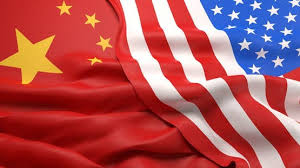America and China... A Fierce Struggle in a Changing World

Western capitalism relied on "unequal exchange," where core countries (the United States and Europe) benefit from cheap resources and labor in peripheral countries like China, which was previously an ideal model for this system:
In the 1990s, Chinese workers' wages were less than a dollar an hour, making it a paradise for multinational companies like Apple, which saved $572 on the cost of each iPad thanks to Chinese labor.
China had to export millions of goods to buy one Boeing airplane, but it broke this equation after 2010 through:
Rising wages, which reached $8 an hour, and by improving trade terms, it no longer needed to export massive quantities to purchase technology. It began producing high-quality goods that compete with the West itself.
This change threatens the profits of Western companies that have relied on cheap labor, pushing America to try to return China to the role of a humble supplier.
One of the pillars of Western dominance is technological monopoly (chips, aircraft, pharmaceuticals, etc.). But China challenged this with:
The world's largest high-speed train network. Domestic commercial aircraft like the COMAC C919. Leadership in renewable energy and artificial intelligence. And it developed advanced chips despite sanctions (such as Huawei's 7nm processors). This ends the Global South's dependence on the West and provides cheaper alternatives for developing countries.
This has led America to take many actions, including:
Sanctions on companies like Huawei. Banning the export of advanced chips to China. In addition to pressuring Western allies to boycott Chinese technology.
America accuses China of being a "military threat," but the numbers say otherwise:
China's military spending per capita is lower than the global average and one-tenth of U.S. spending. America has 800 military bases abroad, while China has one (in Djibouti).
China has not waged wars for 40 years, while America has invaded 14 countries since 2001.
What America seeks today is to force China to increase military spending at the expense of economic development. And to intimidate countries from cooperating with Beijing.
Until 2010, China was the "world's workshop" serving the interests of Western companies. But after it began developing its own technologies and raising the living standards of its workers (which reduces the profits of foreign companies). And establishing projects like the Belt and Road Initiative (to connect the world outside Western dominance). It thus became the first developing country to break the monopoly on technology and wealth, threatening a global system that has been under Western control for centuries.